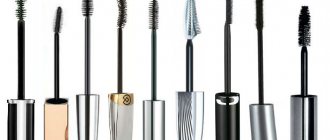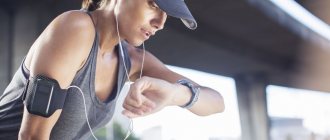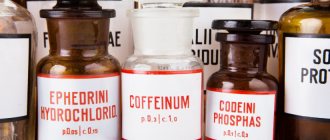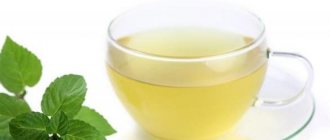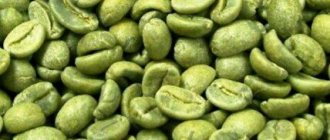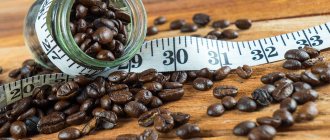What is caffeine?
Before we figure out the pros and cons of this substance, as well as the benefits of caffeine for a bodybuilder, let's figure out what it is in general.
At the end of the article, as always, I will describe to you my experience of taking caffeine (regular coffee and caffeine capsules), and also tell you where to buy it cheaper.
Caffeine is an alkaloid and a powerful CNS (central nervous system) stimulant. It can also be classified as a narcotic drug (it is addictive and requires an increase in dosage).
Caffeine is found in plants such as:
- Coffee.
- Tea.
- Mate (drink of the Guarani Indians).
- Guarane (evergreen creeping shrub from the Sapindaceae family).
- Kole.
- And many others.
Also, caffeine can be found in energy drinks, sports nutrition, almost all fat burners, and many pre-workout complexes.
Caffeine for weight loss. Effects for a bodybuilder
You and I, as people involved in sports, are interested in three main questions:
- How does caffeine help you lose weight?
- Is there any point in taking caffeine?
- And if it makes sense, then how much and how to take?
I think I'm right)
So, let's talk about the main effects of caffeine directly for a bodybuilder.
Most of the studies that have been conducted with caffeine have been aimed specifically at those sports that require a significant increase in endurance.
From this point of view, caffeine really helps to achieve more serious results.
First theory: fat-burning effect of caffeine
The very first and MOST BELIEVABLE theory is that caffeine promotes the production of ADRENALINE (the fear hormone), which accelerates the release of free fatty acids into the blood and is a stimulant of the central nervous system.
In an article about how to overcome fear, we looked at a very interesting ability of adrenaline, which was used by our ancestors tens of thousands of years ago.
I'm talking about the ability of adrenaline at the reflex level to force the human body (and not only) to mobilize all its energy reserves for instant decision making.
This is a reaction called "Fight or Flight!" This is what adrenaline can trigger.
Caffeine promotes the production of this same adrenaline.
Due to this, at the very beginning of our training, the muscles begin to “eat” or “burn” available fatty acids, while maintaining reserves of muscle glycogen (fast fuel, stored carbohydrates in the muscles and liver).
Scientific research has confirmed this theory.
Do you understand?
Those. THE MAIN FUEL for muscles (glycogen) is not yet consumed, but FATs are already burning. I think it's perfect. Due to this, endurance increases.
But, in fact, it is obvious that this effect is very beneficial for any athlete training with iron, and not just for a person seeking to increase his endurance.
You feel an energy boost at the very beginning of training, your performance is at a high level, and your glycogen “tanks” are still full, despite the fact that fats have already begun to burn.
- Those. we are not sluggish (the central nervous system is stimulated by caffeine) - this is the case.
- We burn fat reserves - that's two.
- And we have unspent glycogen for longer workouts.
How cool is that? Still would.
Very often they talk about the ability of coffee to suppress appetite. Research doesn't support this.
Fat burning is associated precisely with the processes of starting the production of adrenaline and starting the burning of fatty acids in the blood as a priority.
Second theory: caffeine directly affects muscles
This theory is that caffeine can directly affect skeletal muscles (the ones we pump), changing key systems that regulate the breakdown of carbohydrates inside cells.
That is, roughly speaking, scientists wanted to draw the conclusion that caffeine directly causes muscles to reduce glycogen consumption.
Many studies have been conducted, none of which have been completed, so no clear results have been obtained.
Third Theory: Caffeine Makes You Work Harder
The third, MOST COMMON and MOST PROVEN by scientific experiments theory of all.
Caffeine can make a person feel like they have done less work than they actually have.
This is explained by the fact that caffeine, due to its effect on the nervous system, can provide a psychological effect to athletes that they are not working as hard. Also, caffeine can enhance the strength of muscle contractions.
Oddly enough, caffeine is VERY SIMILAR to adenosine! Why strange?
Yes, because adenosine is an inhibitory type nucleoside neurotransmitter that plays a role in stimulating sleep and suppressing alertness, because its concentration increases during prolonged wakefulness of the body and decreases during subsequent sleep.
Those. Caffeine is a stimulant, but similar to adenosine, which promotes sleepiness. How so?
The fact is that caffeine does NOT have the same effect as adenosine, although it can interact with adenosine receptors on brain cells.
Instead, caffeine STIMULATES the production of adrenaline, a hormone that makes you feel better during exercise.
Other effects of caffeine
Here are other, no less interesting, effects of caffeine:
- Prevents Alzheimer's disease and dementia when consumed 3 to 5 cups per day (by preventing the formation of beta-amyloid plaques in the brain).
- Coffee lovers live longer (coffee helps slow down the process of brain destruction).
- Reduces the risk of developing breast cancer in women (Nutrigenet and Nutrigenomics Study 2015).
- Helps avoid systemic inflammation, heart and vascular diseases.
- Helps increase testosterone levels after training (by an average of 21%).
Negative effects of caffeine
Since caffeine is a central nervous system stimulant, one should not forget about the negative effects of caffeine on the body, especially if used improperly or in excess.
- May aggravate the ulcer.
- Worsening of the course of cardiovascular diseases.
- Increased blood pressure.
- Anemia (hypertension).
With these contraindications, it is better to stop drinking caffeine and try to improve athletic performance through training programs and nutrition.
Cosmetic uses of caffeine
Cellulite is not necessarily a consequence of obesity. This cosmetic defect also occurs due to poor nutrition and slagging in the body. Caffeine wraps are an effective remedy against cellulite.
Wrapping procedure:
- Mix the contents of 2 ampoules of “Caffeine-sodium benzoate” with 3 tbsp. l. blue clay and 1 tbsp. l. ground coffee, add warm water or milk, apply to the problem area and cover with plastic wrap.
- Lie down for 40 minutes.
- Rinse the mixture with warm water, massage and lubricate the skin with moisturizer.
Wraps are carried out in courses of 10 procedures, the interval between procedures is 2–3 days.
Caffeine increases blood and lymph circulation, stimulates the removal of toxins from the skin pores, improves its condition: tightens it, makes it more elastic. Caffeine wraps help to avoid sagging skin during sudden weight loss and help reduce body volume in problem areas.
Caffeine with creatine: can I take it?
I have already talked about the interaction of these substances in an article about creatine monohydrate.
People very often hear the misconception that caffeine inhibits the action of creatine by destroying the latter's molecules.
But the interaction between creatine and caffeine is still debated. Many studies contradict each other.
If we analyze the collected scientific data, we can conclude that caffeine is indeed an antagonist of creatine, but their TOTAL EFFECT will be more positive than individually.
If it is very exaggerated, then you can take the effect of creatine = 2, the effect of caffeine = 2. Accordingly, caffeine + creatine = 3 (effect of caffeine = 2, effect of creatine = 1).
Conclusion: We will not get the same effect as we would like to expect by reducing the effectiveness of creatine, but the total effect will be greater.
Is it possible to lose weight on thermogenics without dieting or exercise?
When taking thermogenics, active lipolysis occurs - the breakdown of fat. At the same time, a large amount of free fatty acids is released into the blood. They are an excellent source of energy. Some of this energy will be lost with heat. However, the other part, if it is not spent on movement, will again be deposited “in reserve” in the form of fat. This will significantly reduce the effect of thermogenics. Therefore, if you do not move, the effectiveness of thermogenics is significantly reduced.
What will happen if you don’t change your diet? Food for the body is, first of all, a source of energy and nutrients necessary for work, including muscle work, without which movement is impossible. When the need for energy increases, the body first begins to take it from food, then from liver glycogen, then from muscle proteins, and only at the very end from fat. Thermogenics allow you to intervene in this process and “save” glycogen and muscles. But if you continue to eat sweets and fast food while taking them, the body will have no reason to waste its reserves, because it will receive all the necessary and even excess energy from food.
Therefore, if you take thermogenics and do not change your caloric intake and lifestyle (eat everything and don’t move), there will be no effect. This can only harm the body, cause heart problems and disrupt metabolism. To achieve the best results when taking thermogenics, you need to exclude sweets, starchy foods, fatty foods, and fast food from your diet and add or exercise regularly.
Where is there more caffeine: tea or coffee?
Let me list below the main caffeine-containing drinks and show the caffeine content in each:
- Black tea – 40 – 60 mg;
- Green tea – 75 mg;
- Freeze-dried coffee – 60 mg;
- Coffee brewed in a coffee maker – 60 – 120 mg;
- Red Bull, Burn – 100 mg;
- Coca-Cola – 40 mg;
- Dark chocolate (~50g) – 40 mg;
- Milk chocolate (~50g) – 12 mg.
Those. we need to understand what kind of tea and what kind of coffee we mean.
If you compare black tea and freeze-dried coffee, you may end up with roughly the same caffeine content per cup.
But if you compare the same black tea and coffee from a coffee maker, the caffeine content may differ in favor of coffee by almost two times.
Why does coffee make me sleepy?
There is a scientific explanation for this.
- The most unpleasant thing that can happen is a problem with the adrenal glands. If such a symptom occurs regularly after drinking coffee, then you should consult a doctor.
- This can happen if you drink several cups of coffee one after another, after a short period of time. There may be spasms or constriction of blood vessels in the brain, which will make you want to sleep. It is worth thinking about the amount of coffee you drink.
- One of the latest studies confirms that if you feel sleepy after drinking coffee, this may indicate the presence of the Einstein-Barr virus in the body. This virus adversely affects the nervous system and promotes the formation of cancer cells. Maybe the name of the virus makes you smile, but it has been established that 50% of people on Earth carry this virus in their blood.
- Drowsiness after coffee may indicate problems with the pancreas. In this case, enzymes poorly digest substances entering the body, caffeine is not completely filtered out, and the lion's share of it ends up in the brain.
- The last and most common reason is that caffeine affects the central nervous system differently among people. Nerve cells in the brain can not only be stimulated by caffeine, but also inhibited. In most cases, this is a sign of caffeine overdose and overstimulation, and, as a result, triggers a defense mechanism that causes drowsiness.
Contraindications and symptoms of overdose
Caffeine is a natural and, more importantly, very common substance. People who have contraindications to it probably already know about this. However, you should be a little more careful with dietary supplements, since it is much easier to overdose on caffeine with tablets than with regular coffee. Here is a list of who should not take caffeine pills for athletes:
- teenagers under 18 years of age;
- To old people;
- pregnant women;
- women during lactation;
- patients with diabetes;
- people with serious cardiovascular diseases;
- for sleep disorders;
- with epilepsy or a tendency to seizures.
People with contraindications are not prohibited from taking caffeine benzoate tablets, but before use they must consult a specialist. If taking caffeine for training leads to any negative consequences, then you need to stop the course and immediately consult a doctor. Symptoms of caffeine overdose may include:
- anxiety and anxiety;
- epileptic seizures;
- headache and ringing in the ears;
- insomnia;
- high blood pressure and rapid heart rate.
Stopping treatment abruptly may lead to other negative consequences. If you give up caffeine in 1 day, rather than gradually reducing the dosage, you may experience increased fatigue, lethargy and drowsiness. And low-quality dietary supplements can lead to digestive disorders: abdominal pain, nausea, vomiting, diarrhea, and so on. In general, improper use of caffeine-sodium benzoate in sports can easily lead to various negative consequences, so you must strictly adhere to the instructions.
Delivery throughout Russia You can order sports nutrition in the KULTURIST#1 online store anywhere in Russia. More detailed information about delivery can be found on the “Delivery and Payment” page. Retail store addresses
#1 St. Petersburg Strike Avenue 96k3, st. m. Avtovo
#2 Novorossiysk st. Yuzhnaya, 21
#3 Sochi st. 20th Mountain Rifle Division, 18a
My experience with caffeine
To be honest, I’m still a coffee lover.
I fucking love coffee, in all its forms. And the very smell of coffee gives me a feeling of such homely warmth and comfort.
This is probably due to the fact that when I visit my parents in my hometown, my mother, who always gets up early in the morning, makes coffee in a Turk.
The aroma spreads throughout the house! After that I wake up. Such a warm feeling, even now. I want coffee made by my mother)
And after a trip with my Ksyushka to Thailand, I also fell in love with iced coffee - Frappuccino! If you haven't tried it, I highly recommend it! You're lucky if there's a Starbucks in your city) I'm jealous)
So here it is.
Usually, I drink 1-2 cups a day. I don’t allow myself more, despite the fact that I bought a coffee machine for home - my very old dream) Another confirmation that dreams come true!
So, I try not to drink more than 1-2 cups of coffee a day.
During cutting, when the low-carb diet is completely annoying, I buy a jar of caffeine to feel good:
I literally take one tablet (200 mg) 30-60 minutes before training once a day and feel better during training.
I think it’s stupid to describe the sensations of taking caffeine, but let’s stick to tradition and tell you exactly my experience:
- Mental focus is MUCH BETTER. Even after work, concentration on training is higher.
- Endurance improves. It takes much longer to do cardio, and the intensity of the exercise increases.
- The head becomes light. I don’t know how to describe it, but you start thinking from scratch. It helps a lot after work.
- Separately, I would like to highlight strength in training. It becomes 5-15% higher on average. Depending on the condition and recovery the day before. If you go to the gym on a day off, having slept, rested, eaten, then your strength will increase on average to 5%, if after work, then by 10-15% of the possible (since initially you are more tired).
I bought this caffeine at the cheapest price using this link.
1 cup of coffee (237 ml) contains approximately 100 mg of caffeine. The recommended dose to achieve an effect during training is 3-6 mg per 1 kg of body weight.
Let me explain, for example, if you weigh an average of 70 kg, then 200-210 mg of caffeine before training will give you the desired effect.
What about dehydration during training from caffeine?
A 1977 study in the United States in Ohio confirmed that caffeine does not contribute to dehydration during training.
They took six cyclists and forced them to pedal for 3 hours each. There were no differences in performance or urine output during exercise.
The effect of caffeine on training performance
A story about how caffeine, the world's most popular stimulant, can enhance your workout performance without causing addiction!
Nothing gives a better pre-workout energy boost than caffeine. It's no surprise that caffeine-containing pills and drinks are the most common category of supplement among bodybuilders, athletes, and gym-goers. Study after study shows that caffeine increases alertness, focus, improves mood, increases pain threshold, promotes fat burning and helps improve performance during long sessions in the gym and professional sports.
In fact, caffeine works so well that up until 2004, its use was banned by the World Anti-Doping Agency. You're probably thinking, “Caffeine ban? Yes, that's great! Everyone uses it!” Fortunately, this line of thinking was the main reason why this ban was lifted, since the “threshold level” between general use and abuse cannot be precisely established. Since then, urine tests have shown that more than 75% of athletes routinely consume caffeine during competition.
Not to mention the consumption of caffeine by people who are not involved in professional sports, at home, at work, or, as it sometimes happens, everywhere, constantly and in fairly large quantities. Today, most people regularly use this bitter, psychoactive stimulant in some form or another, with many doing so on a daily basis.
Whether you use it or not, it's good to know what caffeine actually is and what effects it has. Let's take a scientific look at how the world's most popular stimulant can help your workouts.
Where did caffeine come from?
In nature, caffeine is a powerful insecticide that plants produce to help kill certain pests, but not all insects, only select ones. For pollinating insects, such as bees, caffeine, on the other hand, helps improve memory and maintain alertness.
It seems that caffeine has been consumed almost since the earliest times in human history. For this reason, it has several origin stories, one of which is a Chinese legend that claims that the ancient Emperor Shennong accidentally discovered tea in 3000 BC when some tea leaves fell into a container of boiling water.
Believe it or not, humans have apparently been consuming caffeinated beverages for as long as we can imagine, and they have remained essential to humans for almost as long. The ancient Chinese philosopher Lao Tzu - the same one who proposed “teaching a man to fish” - deservedly called tea the “elixir of life” already around the 6th century BC!
Coffee has a more finite history that dates back to Arab culture in the 14th and 15th centuries. Coffee was a popular source of invigoration during evening prayers, which is why it became the subject of both mass veneration and much controversy. Soon, along with tea, and after some time - drinking chocolate, coffee traveled from Arab countries along trade routes to Europe.
Much later, at the beginning of the 18th century, caffeine was first extracted by German chemists, and soon by their French colleagues. From the German word Kaffee and the French word café, both of which refer to coffee, the substance's name, caffeine, is derived.
Accordingly, most of the caffeine we consume today is obtained through the extraction process of coffee or tea.
How does caffeine affect performance?
Caffeine acts on the central nervous system to promote spinal cord excitability and muscle fiber development, while reducing the perception of fatigue and muscle pain. Caffeine has been shown to improve physical performance in all kinds of sports, as well as reduce mental fatigue.
Some of the main benefits of caffeine include:
- improves endurance by an average of 3.3 percent (in some cases, increases of up to 17 percent have been observed).
- improves strength performance by 20 percent.
- improves speed over short distances by an average of 6.5 percent.
- improves the performance of weightlifting disciplines by an average of 9.5 percent.
- reduces the level of perceived tension (fatigue) by an average of 6 percent.
Does caffeine have side effects?
First of all, consuming too much caffeine can contribute to increased nervousness and anxiety. However, there are still a few aspects you should be aware of.
DEHYDRATION
Caffeine has been found to have a mild diuretic effect, which presumably leads to dehydration, but this effect is minor. Caffeinated drinks behave similarly to decaffeinated drinks in terms of hydration. However, it is recommended to increase your fluid intake when consuming caffeine, especially if you are exercising in a hot and humid environment.
ADDICTION
Caffeine is addictive, but negative effects can only be seen with regular consumption of more than 200 mg per day. Side effects may last for 2-9 days and include headaches, anxiety, depression and thirst. You can relieve these side effects by gradually reducing your dose until the desired amount is reached.
DREAM
Some people metabolize caffeine quickly, while others metabolize it more slowly. The extent and duration of caffeine's effects are different for everyone. If you are very sensitive to caffeine or prone to anxiety, it is recommended to limit your intake. This may seem obvious, but it's surprising how many people wonder why they don't sleep well when the answer is right there.
Most Common Sources of Caffeine
Research has shown that athletic performance has little effect on whether you drink caffeine or take it in pill form. However, consuming caffeine from natural sources has more positive effects on overall health. Below are the most common ways to consume caffeine, along with their advantages and disadvantages.
COFFEE
Hand-brewed coffee: 340-1020 mg/l
Espresso: 1500-2000 mg/l
Decaffeinated coffee: 10-30 mg/l
This common method of ingesting caffeine also supplies the body with antioxidants, which can help reduce the oxidative damage that muscles experience from lifting weights.
The only major drawback is that caffeine levels can vary widely depending on the preparation method and the type of coffee beans.
Cold coffee DRINKS in cans and bottles
300-750 mg/l
Widely distributed, usually with some protein added in the form of milk, although most also have added sugar. Similarly, it is difficult to accurately determine the percentage of caffeine intake.
TEA
250-550 mg/l
Tea contains antioxidants, particularly epigallocatechin gallate, which has been proven to have fat-burning properties. The caffeine content of different types of tea varies greatly, with black tea generally containing higher amounts than green tea.
SOFT DRINKS
12-15 mg per 100g
The caffeine content of soft drinks ranges from negligible to enormous. Typically, unless they are diet drinks, they are also high in sugar and artificial ingredients.
CAFFEINE CAPSULES
100-200 mg per capsule
This is perhaps the most effective way to consume caffeine, and there are no by-products to worry about.
Cons: Even one caffeine capsule can cause side effects such as nervousness and anxiety, so if you've never tried this method before, you might want to start with small doses.
BITTER CHOCOLATE
42 mg per 100g
Among other undeniably beneficial ingredients, chocolate contains the powerful antioxidant epicatechin. But, as a rule, it also contains a large amount of sugar. So choose dark chocolate that contains at least 70 percent cocoa, which will provide more epicatechin and less sugar.
ENERGETIC DRINKS
320-510 mg/l
This is a convenient but relatively expensive way to consume caffeine. And basically, if you choose the non-diet option, energy drinks are also quite high in sugar.
ENERGY SHOTS
140-200 mg
They usually do not contain sugar, but are also quite expensive. The Food and Drug Administration doesn't require manufacturers to list caffeine content on energy shot labels, so you won't be able to tell exactly how much caffeine you're consuming.
GELS
30-100 mg
Carbohydrate gels are designed to improve endurance and sometimes have caffeine added to them to improve low blood sugar levels. Not all gels contain caffeine, so if you need a specific gel with or without caffeine, read the label carefully. Gels should be consumed with plenty of water.
Green tea extract
Unknown
Although research shows that green tea has benefits for metabolism, most manufacturers do not list the exact caffeine content of this popular fat burner.
Caffeine candies/gum
Chewing gum: 30-50 mg per capsule
Lozenges: less than 100 mg per lozenge
The caffeine contained in these edibles is absorbed quickly, but the huge downside is that most varieties are unable to mask the acrid taste of the caffeine itself. They are simply tasteless.
Pre-workout supplements / fat burners
150-300 mg
They are convenient and often combined with other pre-workout treats, including creatine, beta-alanine, arginine, citrulline, and more.
How to take caffeine?
Most people don't need to be told how to take caffeine - they already do it regularly. But from a sporting perspective, there are a couple of aspects that need to be considered to maximize performance.
DOSAGE
You can start to feel the effects of caffeine with as little as 20 mg (0.3 mg/kg body weight). If you have never used it before, we recommend starting with the lowest dose and gradually increasing it to the required level.
Caffeine reaches its maximum beneficial effect at a dosage of about 200 mg (3 mg/kg body weight), with no additional benefit at much higher doses. At very high doses (6 mg/kg body weight), caffeine, on the other hand, can begin to reduce your productivity and increase anxiety and nervousness. You may think this doesn't apply to you, but many people take a wide variety of caffeine-containing substances without realizing how much pure caffeine they're consuming.
In the morning, do you drink a 100 mg cup of coffee, take 150 mg of fat burners and 200 mg (or more) of pre-workout supplements? Too much caffeine. If you experience symptoms such as trembling, restlessness, nervousness, or rapid heartbeat, reduce your dosage.
TIME
Blood levels of caffeine reach their peak approximately 60-90 minutes after consumption. So, you should take it 1-2 hours before your workout.
Remember that caffeine has a relatively long half-life (about six hours). This means that if you take a 200 mg capsule at 6 pm, you will still have half that amount in your system at midnight. If you're not careful, it can seriously affect your sleep cycle.
